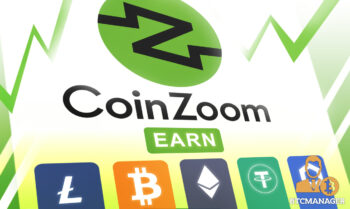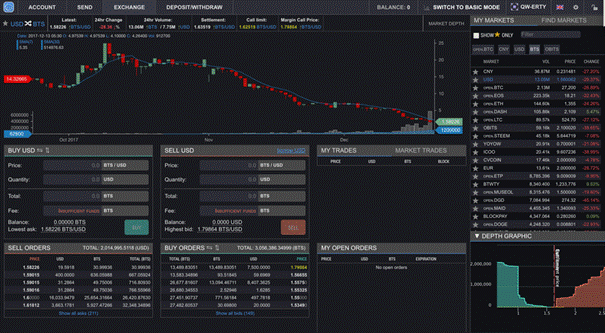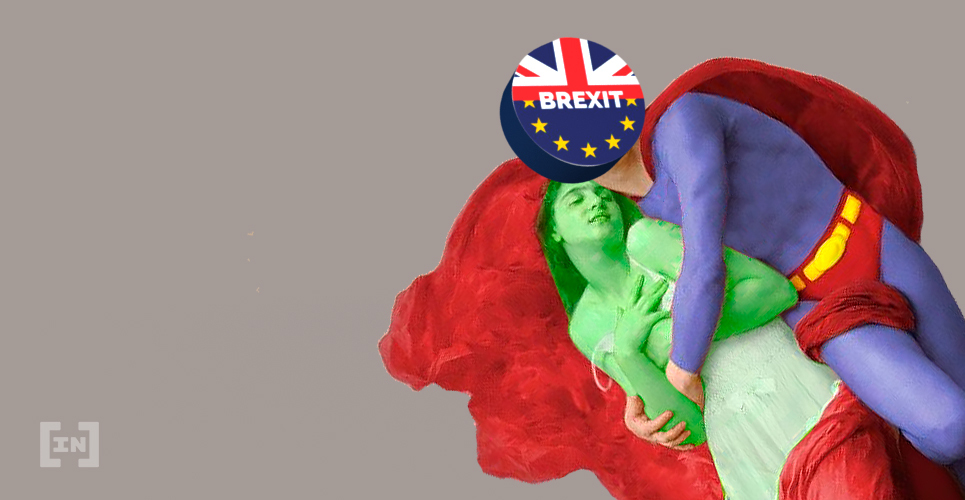2019-2-6 07:59 |
Decentralized Exchange – What is the Appeal?
One of the direct benefits that come with centralized cryptocurrency exchanges is pretty apparent. Some of the most commonly used kinds of centralized cryptocurrency exchanges that are commonly used have a great deal of ease for new users, as well as providing a higher level of liquidity for the range of coins.
For a significant number of users, the notion of taking the first steps into the world of cryptocurrencies can appear to be an arduous task. But centralized exchange allows for this onboarding process to be fair more painless than it's made to seem.
Across a wide range of news outlets, there are more than a good deal of stories out there accounting peoples terrible experiences which can run from participating in illicit marketplaces to being scammed by a Fake ICO or ICO exit scam. It stands to reason that, in light of these cautionary tales that users would go for the exchanges that provide as seamless a process as possible.
If we take this into consideration for a second – The vast majority of people have little in the way of credible experience with trading on any kind of significant footing. So with this lack of experience, what will happen when these users try to make a foray into the world of digital assets?
Out of any cryptocurrency exchange that a user could possibly use for crypto trading, centralized cryptocurrency exchanges are the best possible candidates for those hell-bent on investing in these assets, simply because it is made far easier for users to buy and sell various trading positions.
Along with this simplistic User Interface, these larger cryptocurrency exchanges rarely have issues relating to liquidity. Unfortunately, these same advantages cannot be attributed to some of the first iterations of Decentralized Exchanges (DEXs) that are out there.
In spite of the benefits that we have outlined for users of centralized exchanges, they come with their fair share of fatal flaws to bear in mind. One of the downsides is the fact that these exchanges add a number of artificial roadblocks when it comes to trading privately, these also have far more stringent policies for users to adhere to in the way of anti-money laundering policies and Know Your Customer regulations.
One of the other limitations is that any users will need to entrust their funds, regardless of the value of the assets in question, to a third party storage solution. It is with this in mind, that this brings a single point of failure that pokes out within the centralized crypto exchange, meaning that there is a point of attack that hackers would seek to capitalize on.
Over the last few years, investors, traders, and researchers have shown that cryptocurrencies and digital assets totaling a value of hundreds of millions of dollars that have been stolen by a range of cybercriminals and insiders. It is a prevailing opinion that the benefits that come with trading on a centralized exchange far in a way outweigh the limitations and dangers of using one of them.
Getting to Grips With The Fatal FlawsIf individuals ever wanted a single word answer to what makes centralized exchanges so problematic for end users – it would be security. And the ever-growing range of major hacks that have taken place against cryptocurrency exchanges demonstrates that it is a word and problem that exchanges that are not able to fully address, and users are the unfortunate victims.
We have already seen a significant number of hacks, including the very first, which took place against Cryptopia, seeing it lose a grand total of $16 million in both ETH and a wide range of ERC20 tokens. And while some users may be forgiven for thinking that this was an isolated issue, but it wasn't. And here are some development that took place over 2018 which act as unfortunate reminders.
One of the most prominent examples that we've seen was Mt.Gox in 2014, which saw the total loss of $470 million with of various digital assets, especially Bitcoin. Two years on from this, Bitfinex, one of the more internationally known crypto exchanges, had to endure a total loss of $72 million in Bitcoin, which had reportedly gone ‘missing.' And while these are some of the more widely known events both within and without in regards to the cryptocurrency world. There have been far more than that.
These same centralized exchanges put users in an enforced bind, demanding that they handing over their funds to a dedicated third party provider which are overseen by their dedicated middlemen. So, this not only goes against the fundamental virtues of what blockchain and cryptocurrency were meant to represent. But this also works to leave users highly vulnerable to various kinds of theft.
History has demonstrated an unfortunate sense of humor when it comes to cryptocurrency exchanges, and with those that distinctly lack the security measures needed to sufficiently protect its active users, these hacks are rendered an inevitability, and an unfortunate one at that. What makes it even more painful for centralized cryptocurrency exchanges is that one mistake is more than enough to put countless users in danger.
DEXs, in contrast, are able to tackle this concern directly. These exchanges are able to eradicate a large number of these security flaws that otherwise chronically beset centralized exchanges. How these Decentralized Exchanges manage to do this is by permitting users to trade in a far safer, peer-to-peer (P2P) network.
It is in this ecosystem, there are no middlemen directly involved, and as a result, all transactions are between the two parties alone. Assets are also independently stored, meaning that no third party can provide a point of failure.
Privacy As A Matter Of PriorityOf all the human rights that are out there, privacy is one of those that is widely underrated, but the first thing we wish for when it's gone. But for a large number of cryptocurrency exchanges, privacy is certainly not a priority for centralized cryptocurrency exchanges, and they certainly don't seem interested in preserving it when it is jeopardized.
From the outset, users are compounded to share a large quantity of personal data with the exchange as part of its validation process. Along with this sensitive on-boarding processes, every single transaction is recorded.
What this means is that any individual that has more administrative access to the back end of the exchange will be able to effectively identify all relevant individuals involved in a specific transaction. It is because of this accessibility that this trading data can become incredibly vulnerable, especially considering that a malicious hacker could break into this same database, extract, and sell on this information.
While the first generation of decentralized exchanges was rather rustic and imperfect, they do provide a far greater level of privacy. The registration process was non-existent when it came to onboarding, as well as the lack of centralized entities meant that any and all trading data was and always would remain wholly decentralized and stored on a digital ledger, making it wholly immutable.
While the Peer to Peer trading system removed the likelihood of an untrustworthy and/or crooked third party abusing their position. Where Decentralized exchanges hold the advantages that are not possible from their centralized rivals.
A New Wave Of Decentralized ExchangesIt is with the advantages of these decentralized exchanges that make us consider what we would need to see from the next generation of them. In particular, they need to have a series of methods in order to tackle the key limitations that held back their earlier iterations.
One of these being a matter of financial liquidity. Especially considering the fact that one large buy or sell position is enough for some exchanges to see a massive fluctuation in their market values. Users need to have the confirmation that they will be able to log in to a decentralized exchange. Addressing this issue will mean that decentralized exchanges will be able to provide as reliable a system of trade as their centralized rivals.
While privacy has come front and center in the debate around centralized versus decentralized, there is more that needs to be done in order to provide users with the choice between trading more publically and in private.
Lastly, Decentralized Exchanges also need to provide users with the same kind of fluidity and ease of user experience that is commonplace within the centralized crypto exchanges. Before this, Decentralized exchanges were the playing ground for users that were otherwise better versed with the cryptocurrency market than most. As a result, there was little to no room for newcomers to the crypto scene to jump in on a DEX.
If Decentralized Exchanges are to prove successful, and prove decentralization as being the vanguard for exchanges worldwide, they need to open the doors to newcomers as well.
In order to compete effectively, Decentralized exchanges need to be easy to use, putting them on the same footing as centralized exchanges.
Bitcoin (BTC), Ethereum (ETH), XRP (Ripple), and BCH Top Coin Price Watch (Feb 5th)
origin »Bitcoin price in Telegram @btc_price_every_hour
Global Cryptocurrency (GCC) на Currencies.ru
|
|




















